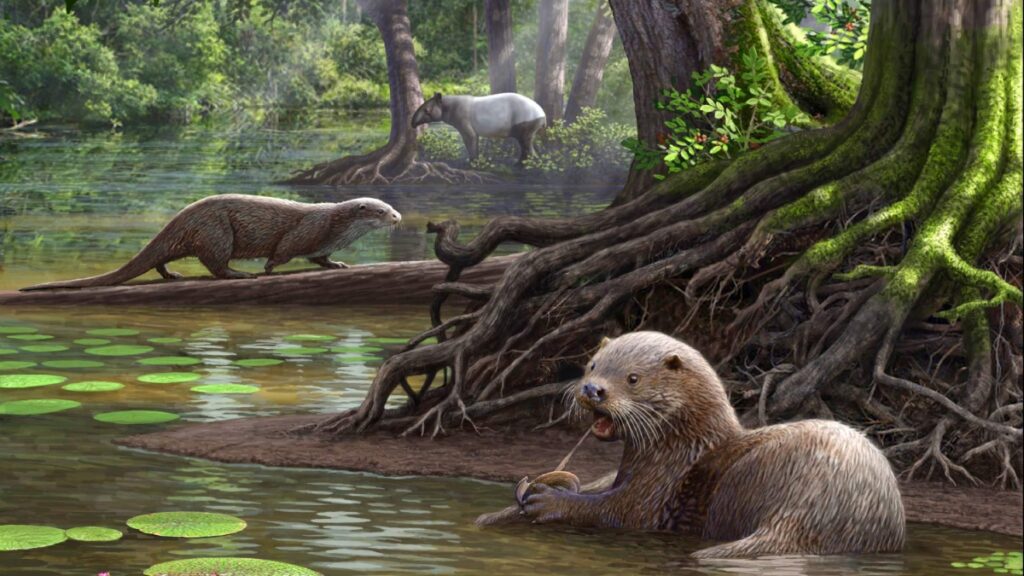ASU scientists finds new info on 100-pound prehistoric otter
Aug. 12, 2025
A study reveals new details about a giant prehistoric otter. In a marshy wetland forest in China, 6 million years ago, an otter the size of a wolf appeared to be the top predator. The otter named Siamogale melilutra, which was first discovered in 2017, weighed nearly 100 pounds, ate mollusks and clams, and lived among water birds, elephants, rhinos, tapirs, deer and beavers.
Denise Su who is a Research Scientist at the Institute of Human Origins at ASU joined “Arizona Horizon” to discuss the prehistoric finding.

Artist’s reconstruction of Siamogale melilutra and habitat. Image courtesy of Mauricio Antón
The otter species lived in an area that is now current day Yunnan province in China.
“Our most recent study showed that it was swimming because that was one of our biggest questions,” Su said.
Su had said that while this species is quite large at about 100 pounds, it isn’t even close to the largest prehistoric otters found, which according to Su, could be as large as 300 pounds. As to why these animals got so large Su said, “We aren’t really sure.”
So, why should we care about an otter that lived 6 million years ago? According to Su, “We are in a time of climate instability… We have been pretty lucky so far as a species; we’ve really been living in the last ten thousand years in a period of extraordinary stability.”
Su says looking at animals and ecosystems from times of transition allows us to understand how ecosystems respond to large-scale changes. And that can better equip our understanding of what’s going on today, how the plants and animals today might respond and can help us plan better for our future.
Alongside our segment above, you can watch Su delve even more into findings about this species here.



















